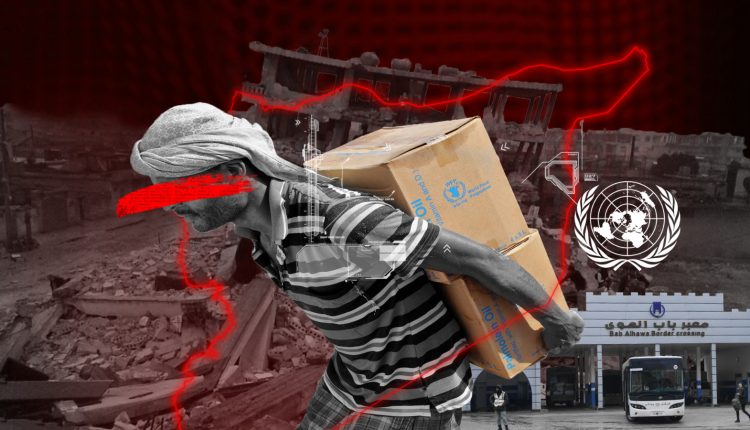The United Nations (UN) Security Council has rejected two draft resolutions aimed at extending the mandate of the aid mechanism that delivers humanitarian aid to Syria through the Bab al-Hawa border crossing. Switzerland and Brazil’s draft resolution to renew the mechanism for 9 months was vetoed by Russia, while a Russian draft resolution calling for a 6-month extension was rejected by 3 “no” votes, 2 “yes” votes and 10 “abstentions”. Failing to renew the vital aid delivery program for Syria will push millions of people in the country into an even more dire situation.
The people in north-west Syria will pay the price
Although 13 countries supported the Brazil-Switzerland draft resolution, one country (China) abstained and one country (Russia) objected. As a result, the resolution was not adopted due to Russia’s veto. After more than 12 years of war and the devastating earthquakes that hit the region in February, the decision has provoked many reactions at a time when humanitarian needs are at their peak. The non-renewal of the authorisation to deliver aid through the Bab al-Hawa crossing will affect millions of people in north-west Syria, and aid operations will continue only through the Bab al-Salam and al-Rai crossings. Pascale Christine Baeriswyl, Switzerland’s representative to the UN, said: “Unfortunately, the people of north-west Syria will pay the price for this veto. She added that they would start working again to find a solution, saying, “We have no time to lose.”
Political interests before humanitarian aid
The decision not to extend the aid program has also been widely criticized by humanitarian and rights organizations. “Russia’s cynical veto of a cross-border aid lifeline for millions of Syrians is a painful reminder that the Security Council should not be entrusted with decisions about humanitarian assistance,” said Floriane Borel, UN advocacy officer at Human Rights Watch (HRW). “Aid delivery should be based on needs, not politics,” Borel added.
The International Rescue Committee (IRC) also issued a statement on the decision: “”We condemn the veto by Russia today on the Syria cross-border resolution. This resolution is a critical lifeline for millions of Syrians, with no viable alternative to meet the growing humanitarian needs in northwest Syria. It defies reason and principle, that Security Council members would vote to not maintain all avenues of aid access for vulnerable Syrians at this time.” The statement criticized the decision, which comes at a time when earthquakes hitting Turkey and Syria have already pushed Syrian communities in the northwest to the brink, and emphasized that the renewal of the cross-border solution for at least 12 months is now even more critical. In conclusion, the IRC urged the Security Council to reconvene and grant access through Bab al-Hawa for a further 12 months.
Impact on the fight against ISIS in Northeastern Syria
With 6 million people living in the region and hundreds of thousands of IDPs in camps, blocking aid by the international community, and Russia in particular, will exacerbate existing problems. The Autonomous Administration of North and East Syria (AANES) and many other organizations have repeatedly warned about the resurgence of ISIS in the internationally neglected region. Moreover, cutting off aid at a time when the region is being targeted by Turkey with threats of a new invasion and intensified air strikes could result in appalling consequences. Neglecting and ignoring the region will lead to a shift in AANES’ focus. This could lead to the empowerment of ISIS and the deterioration of the situation of the people in the region. Thus, prioritizing humanitarian aid in a region where the focus should be on counter-terrorism may provoke a crisis.
Last year, the Autonomous Administration of Rojava announced that the Turkish state was violating international agreements between Turkey, Russia and the USA regarding the region. It is therefore possible that if border assistance is withdrawn, there will be concerns that this could cause an increase in violations.

